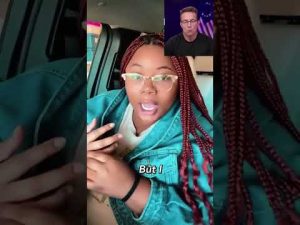In the circus of modern-day outrage culture, this Halloween’s costume contest has taken an unexpected turn down the rabbit hole of absurdity. Enter Lilly Gaddis, the daring entertainer who faced backlash for using the n-word in a TikTok video. Rather than withering in the backlash she stirred, she made an insincere apology, stating she “still couldn’t find a care,” amidst a whirlwind of controversy and retorts. While last year’s controversy about a TikTok cooking video remains unverified, she amassed a legion of followers who likely tune in for a mix of humor and audacity that defies the oversensitive norms.
But what is Halloween without a splash of provocative costumes? While some costumes fuel both ire and intrigue, others turn into the spectacle of online morality plays. Naturally, some are deemed offensive, casting the wearers as villains in the internet’s theater of righteousness. Yet, one can’t help but notice the double standards at play. A popular internet comedian once donned whiteface to comedic effect at a NASCAR event, seemingly with little objection, highlighting costumes as a playground of satire best left to those who can appreciate a punchline over a pitchfork.
Elsewhere in the costume department, another YouTuber, Britany Venti, managed to cause a storm of her own. Sporting an outfit and caption that poked fun at cultural stereotypes, Venti, compared to the likes of self-proclaimed critics, embraced her own identity rather than harbor discomfort. While cries of racism echoed in the digital ether, Venti could lounge back with confidence. After all, personal identity offers unique perspectives on humor often lost on critics.
The pearl-clutching didn’t end there. Progressive commentator reaction often portrays the essence of temperament surrounding these “right-wing influencers.” Perhaps their issues with bold costumes are tied less to ethics and more to humor comprehension. After all, in a world where everyone is offended, wouldn’t it be refreshing if people leaned into costumes without fear of the outrage mob? Halloween for some appears less about letting your hair down and more about buttoning up your collar.
In a grander scope of this cultural parade, there’s a reflection to be had about why certain costumes spark such debates when others slip by with a simple chuckle. Dressing up should remain a fun, light-hearted escape from reality. Yet each year, keyboards click in disapproval, forgetting Halloween’s intent of irreverence and humor rather than serving as a moral battleground. By next October, perhaps the easily offended will discover a sense of humor that fits their costumes a little more comfortably. Till then, we wait and see with bated breath and a smirk.







